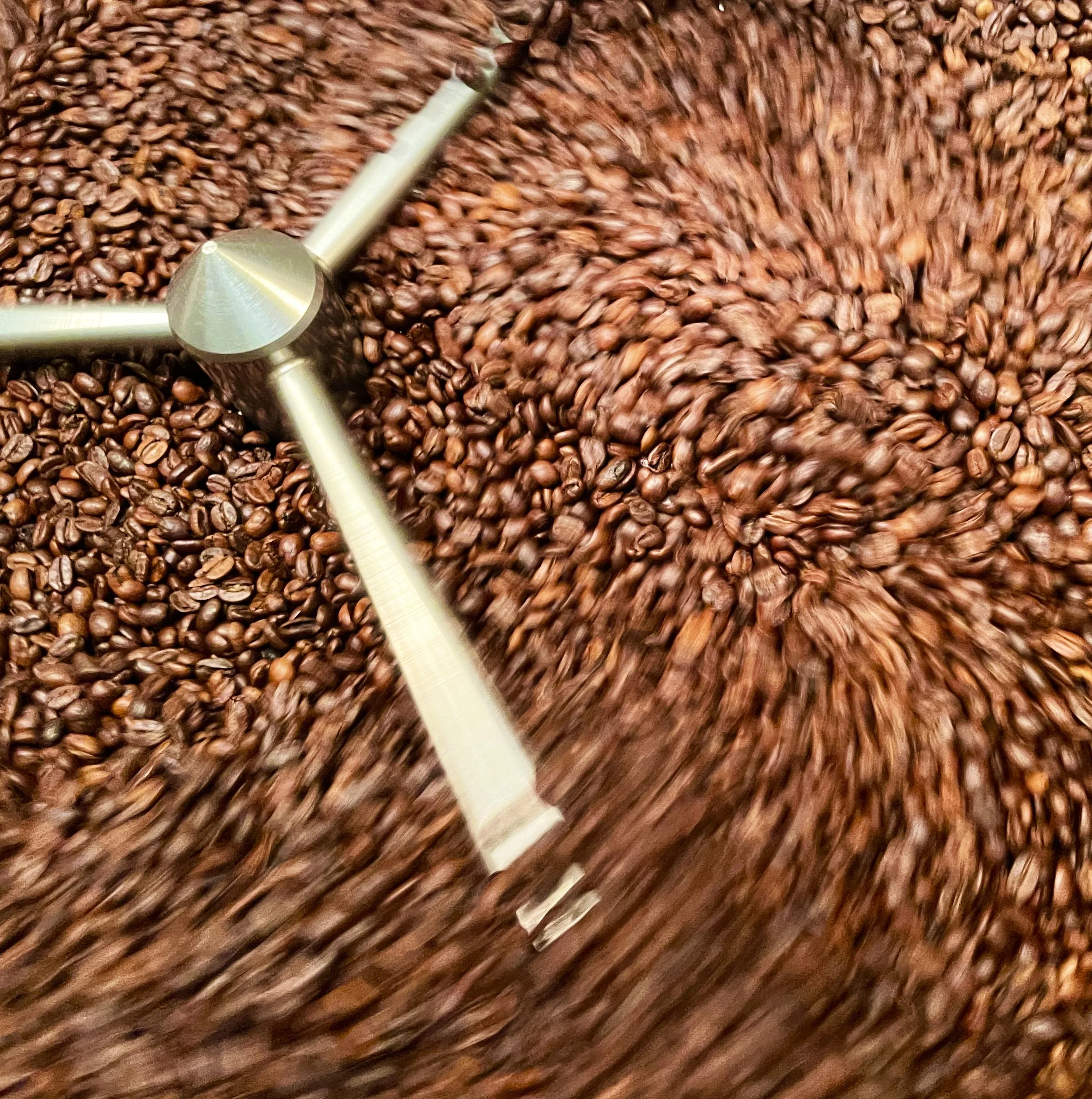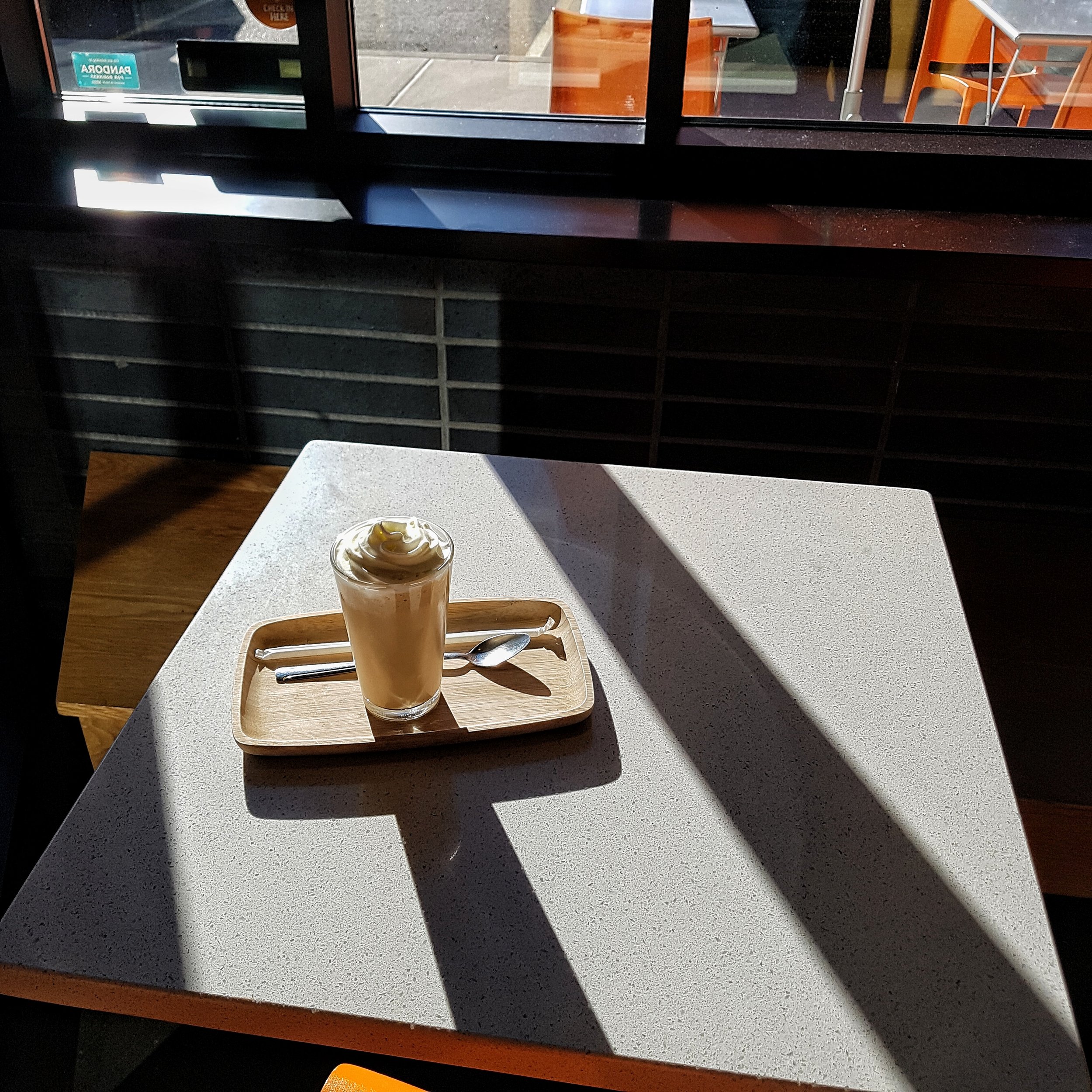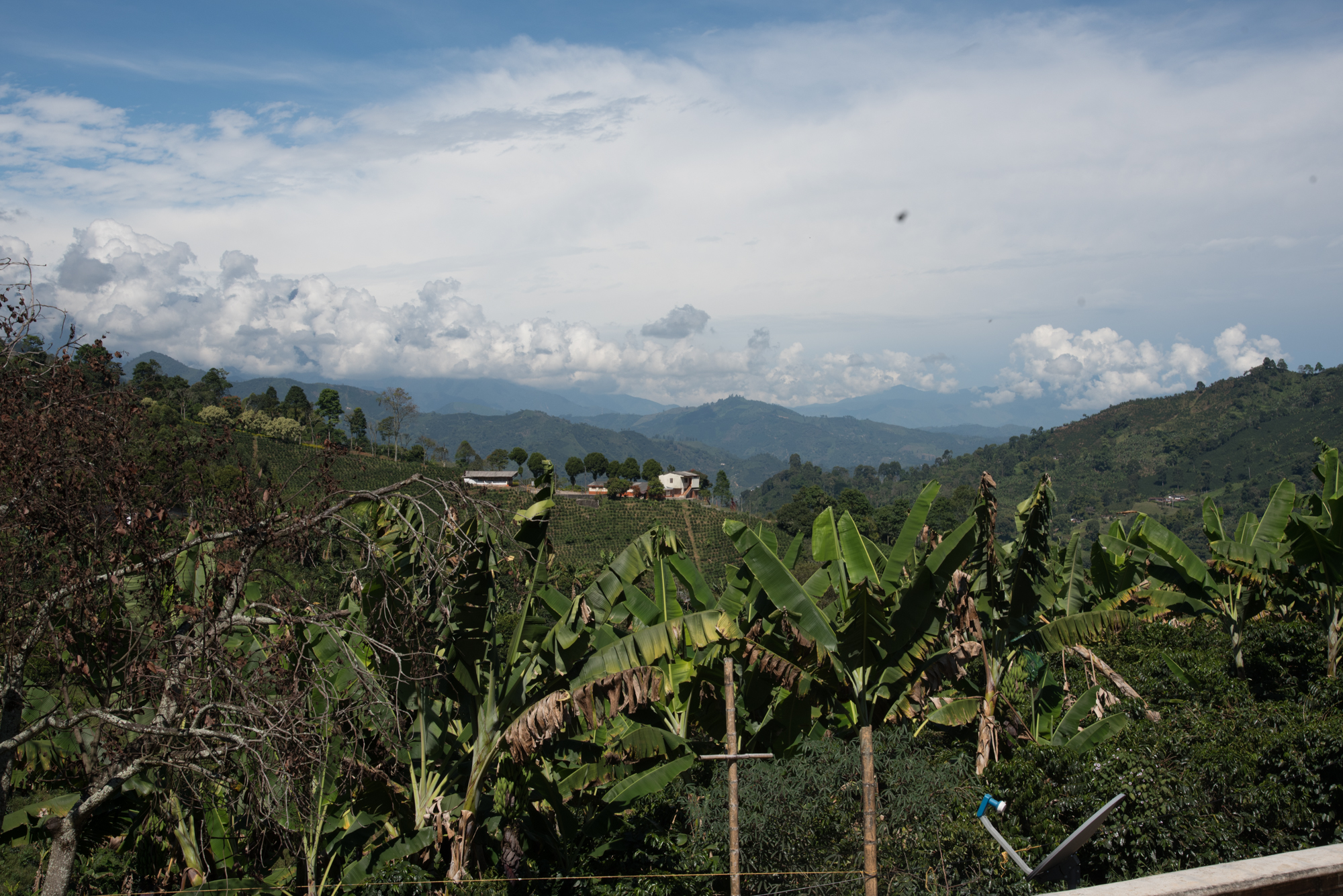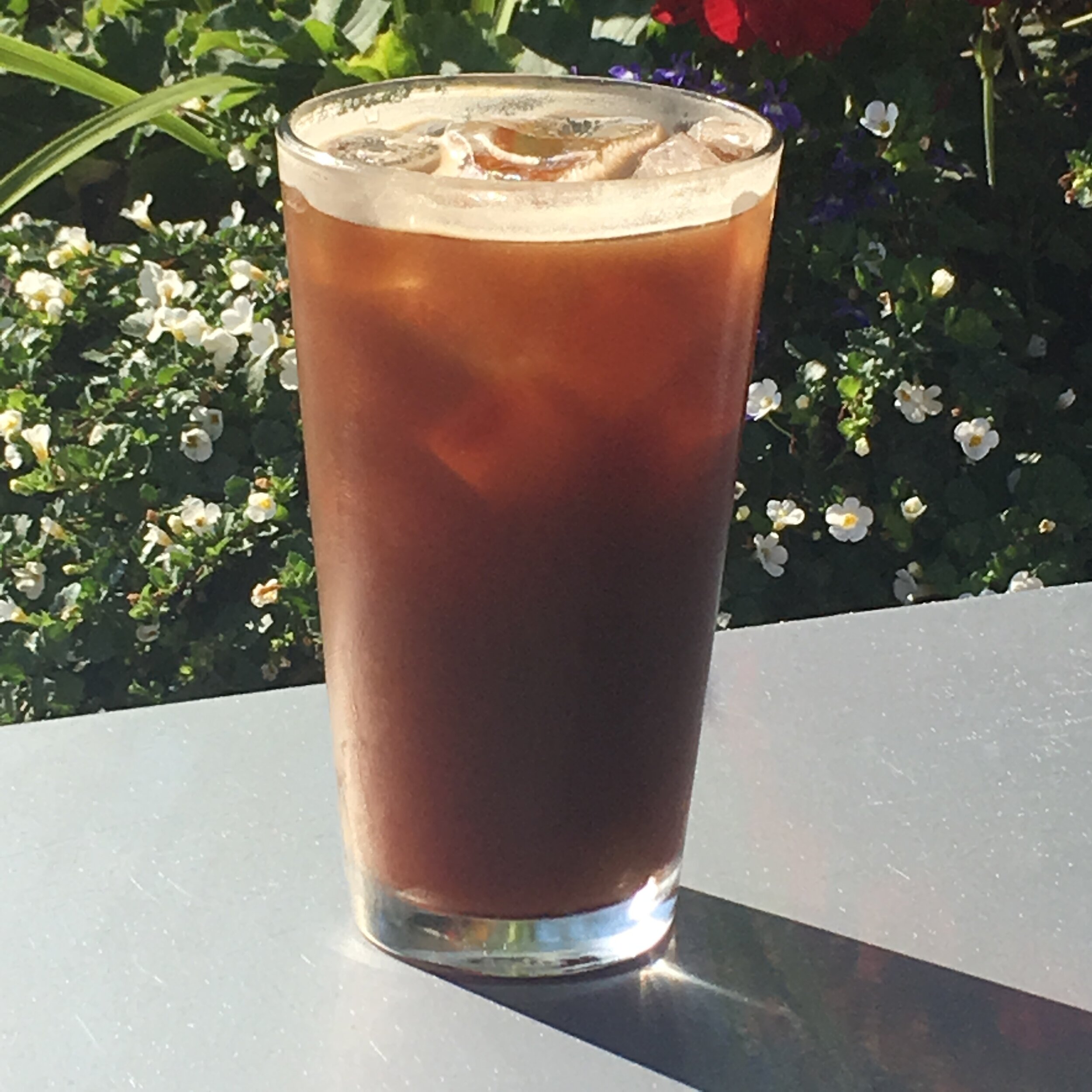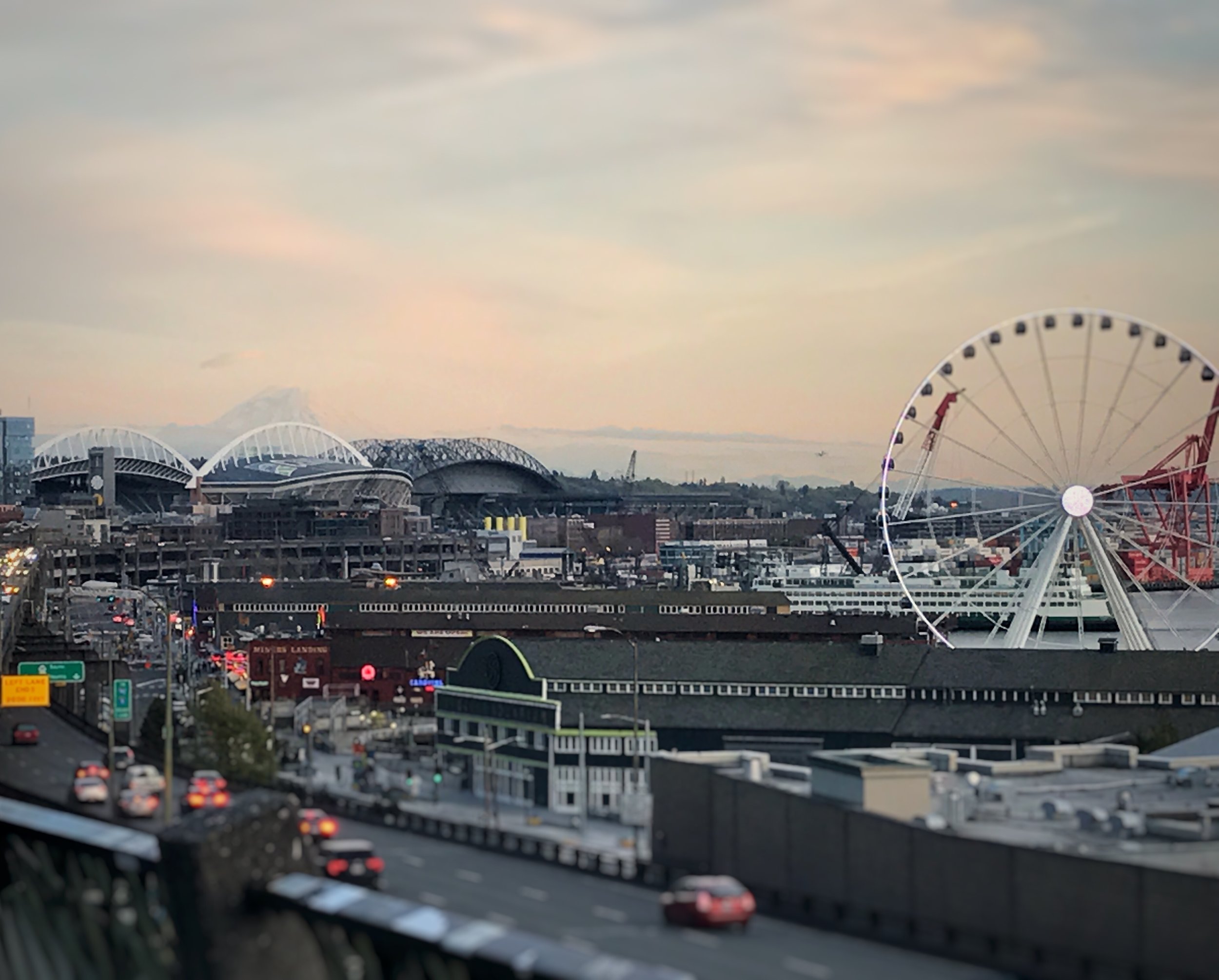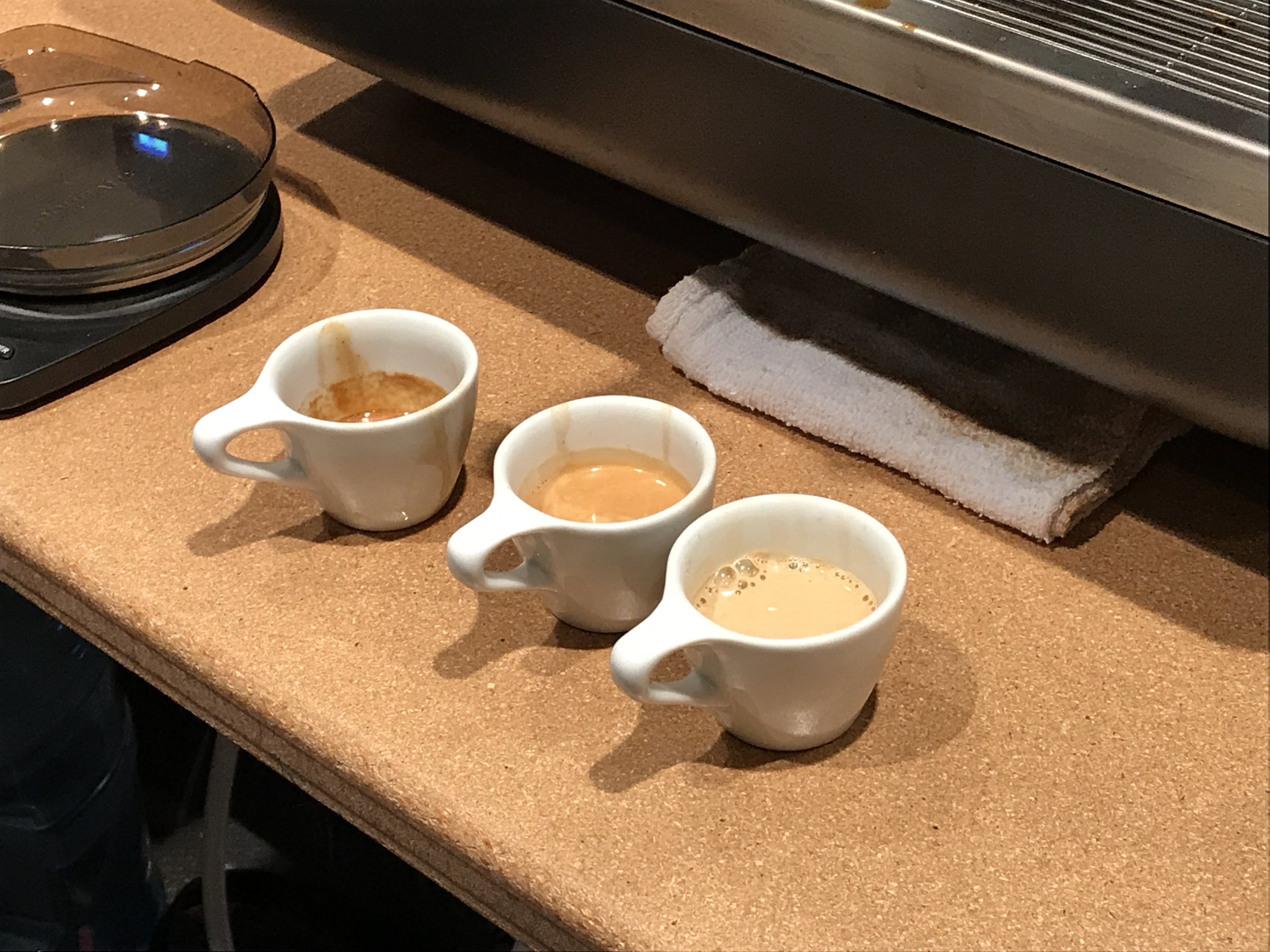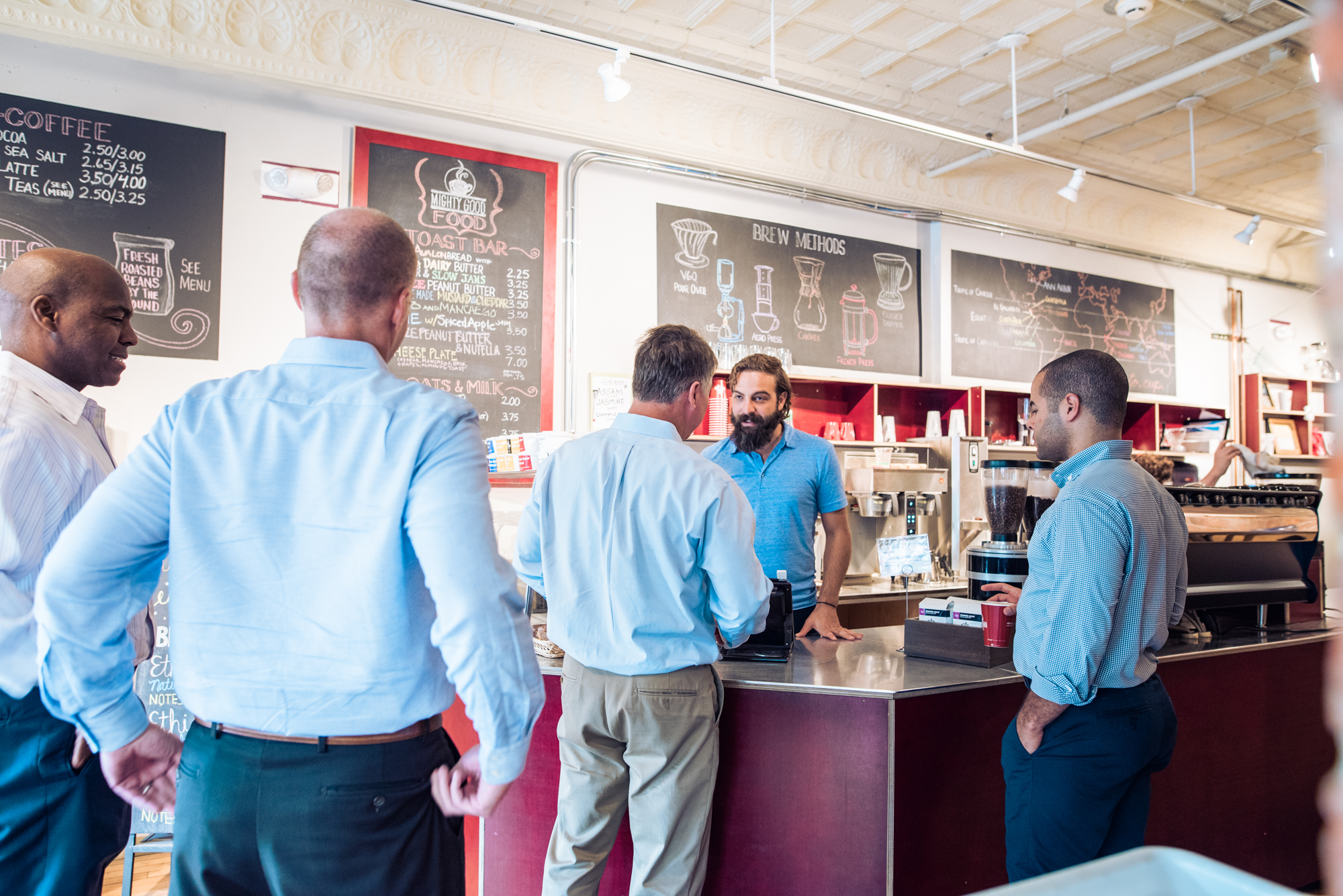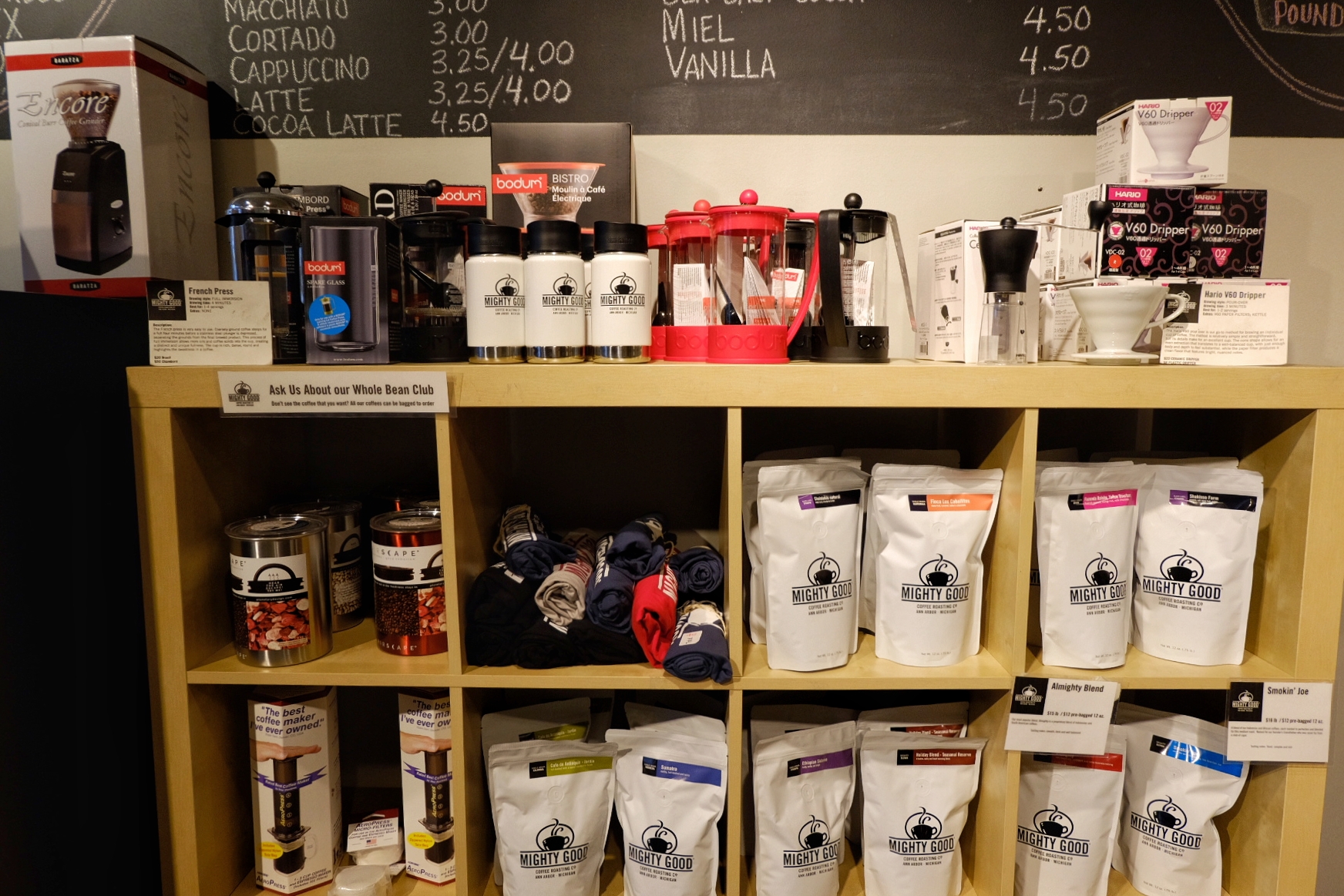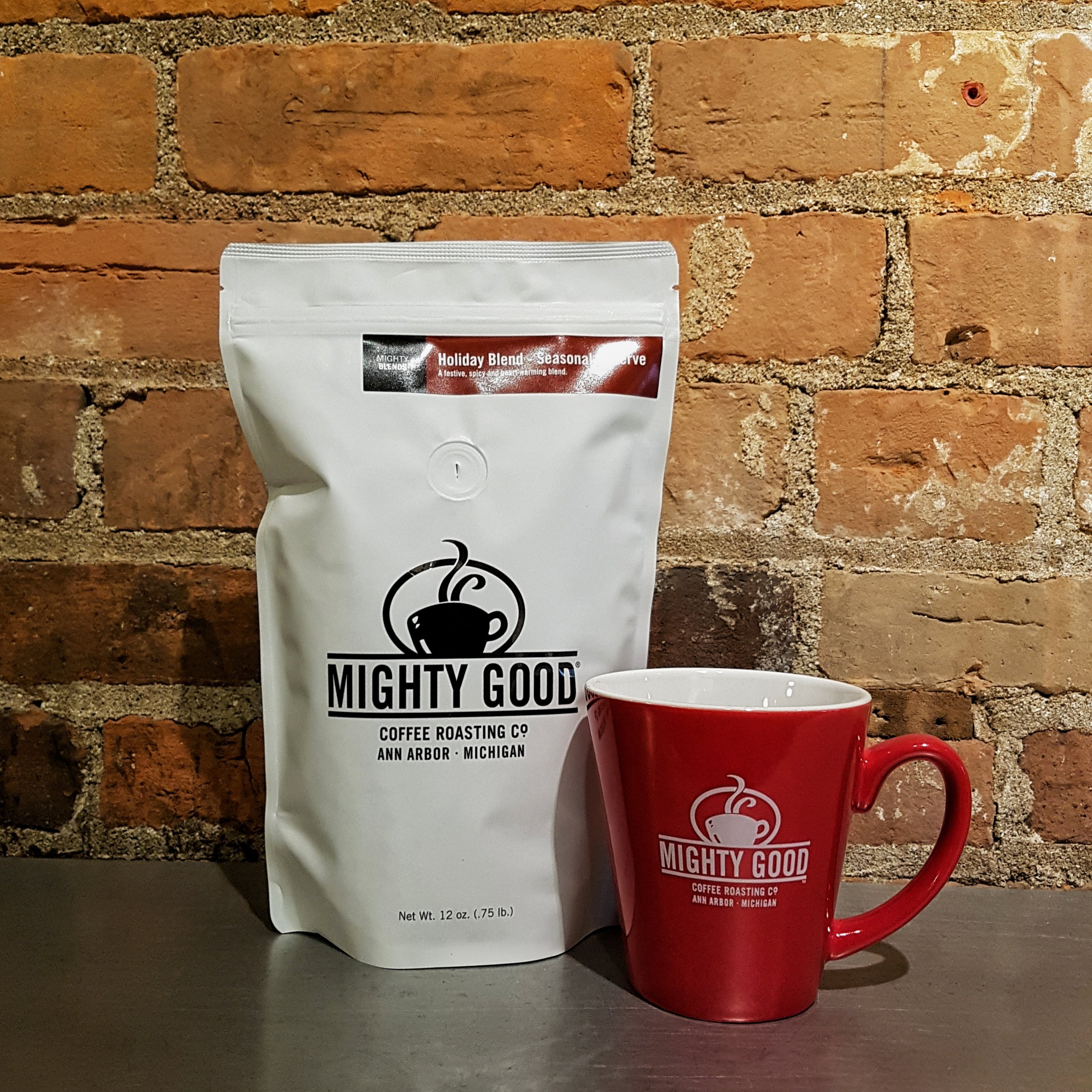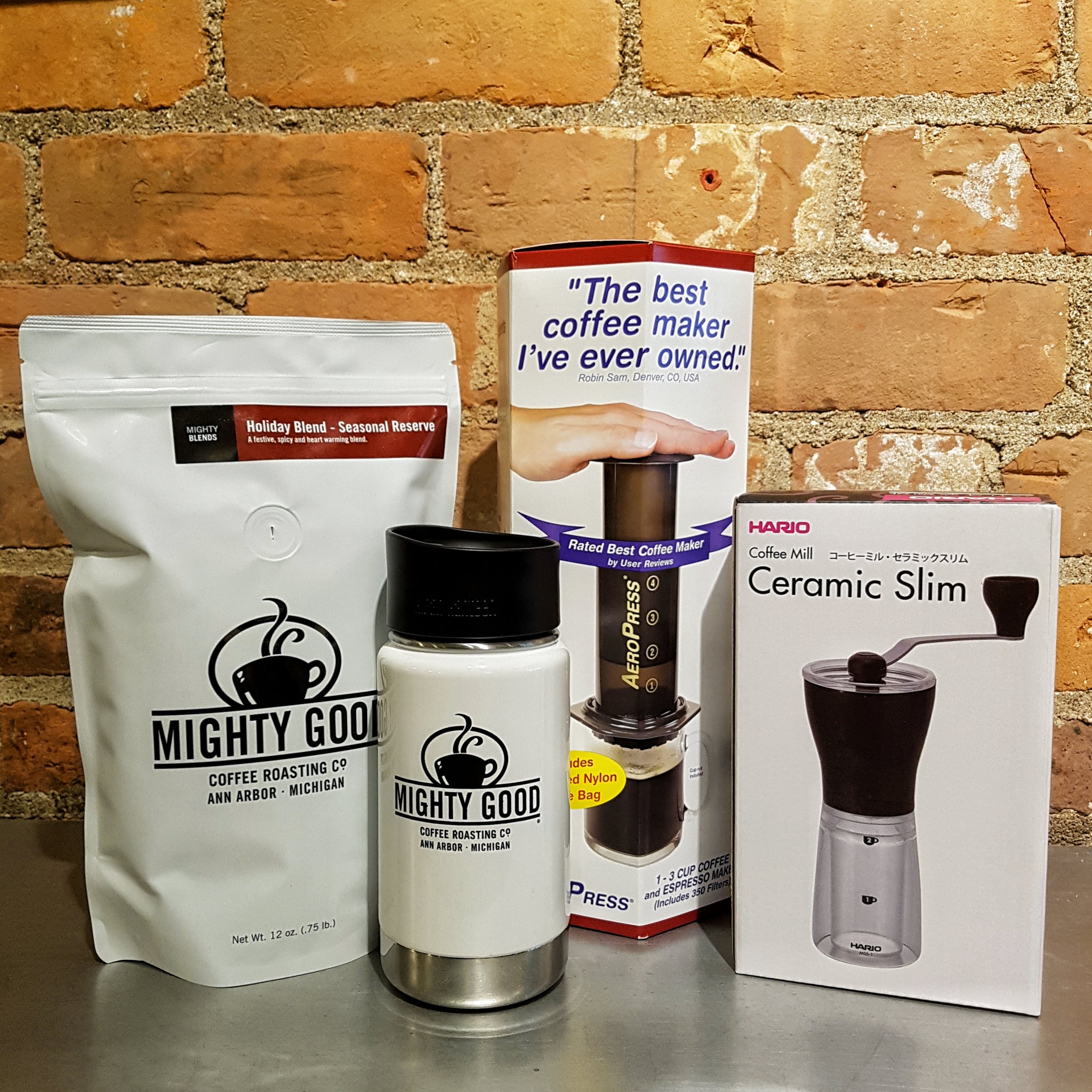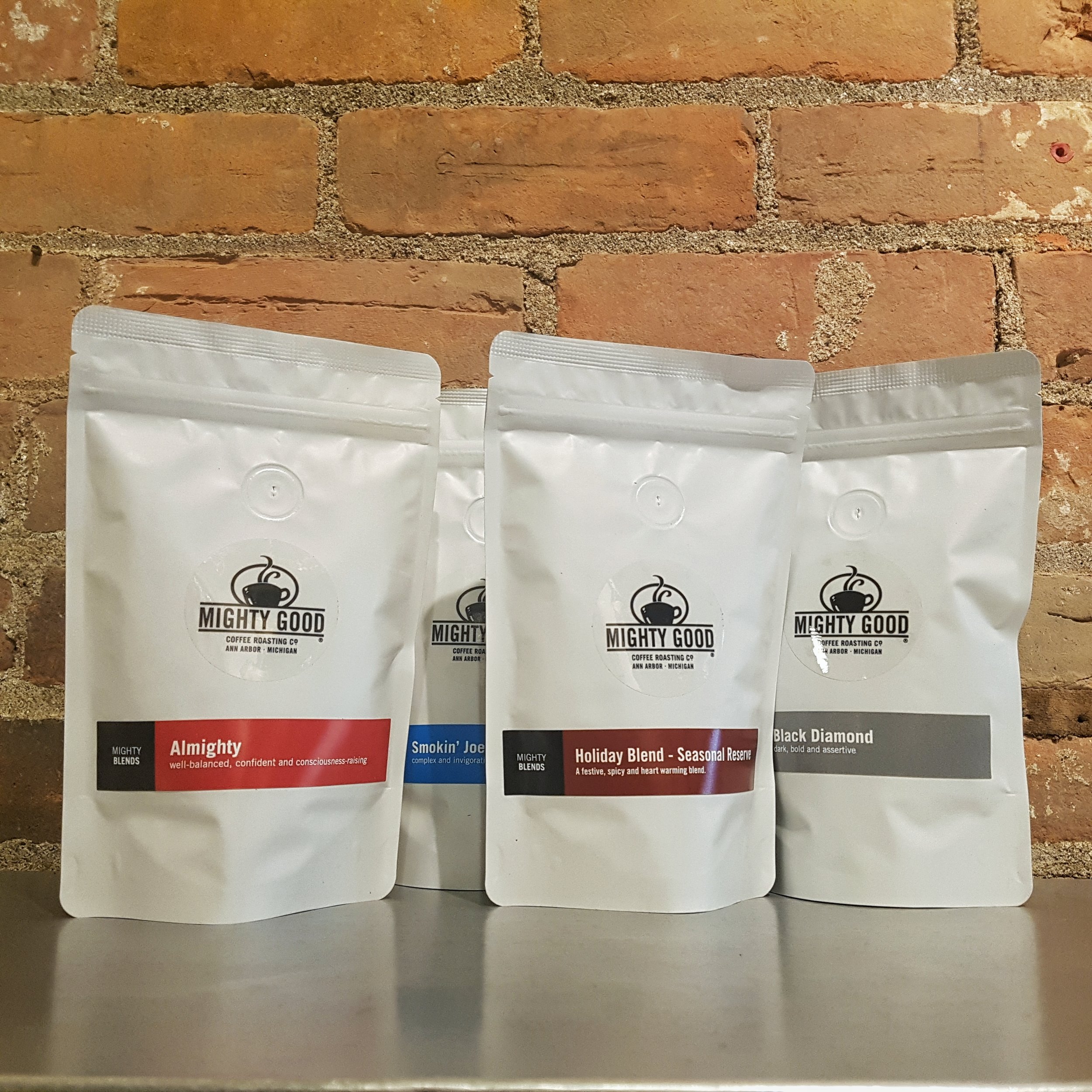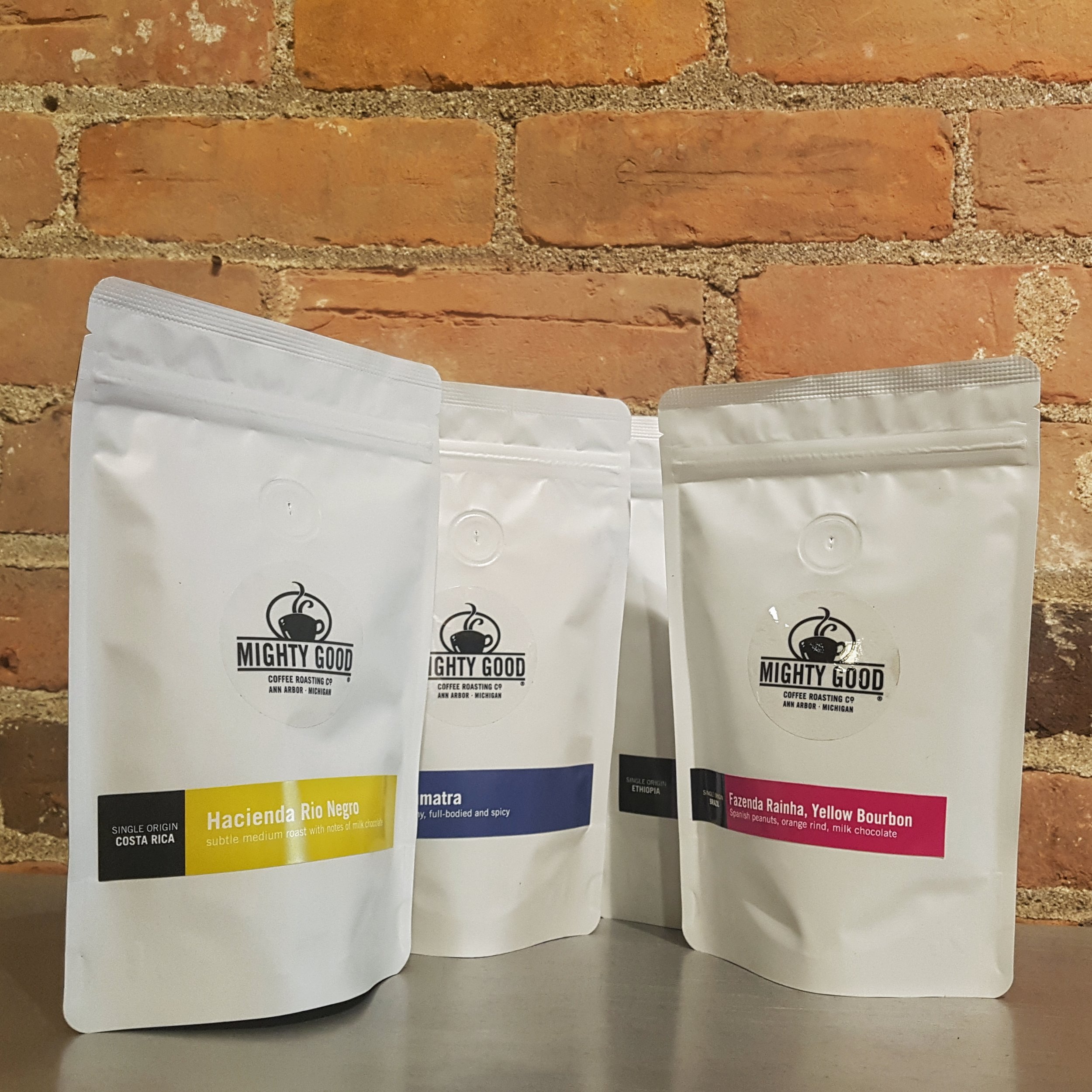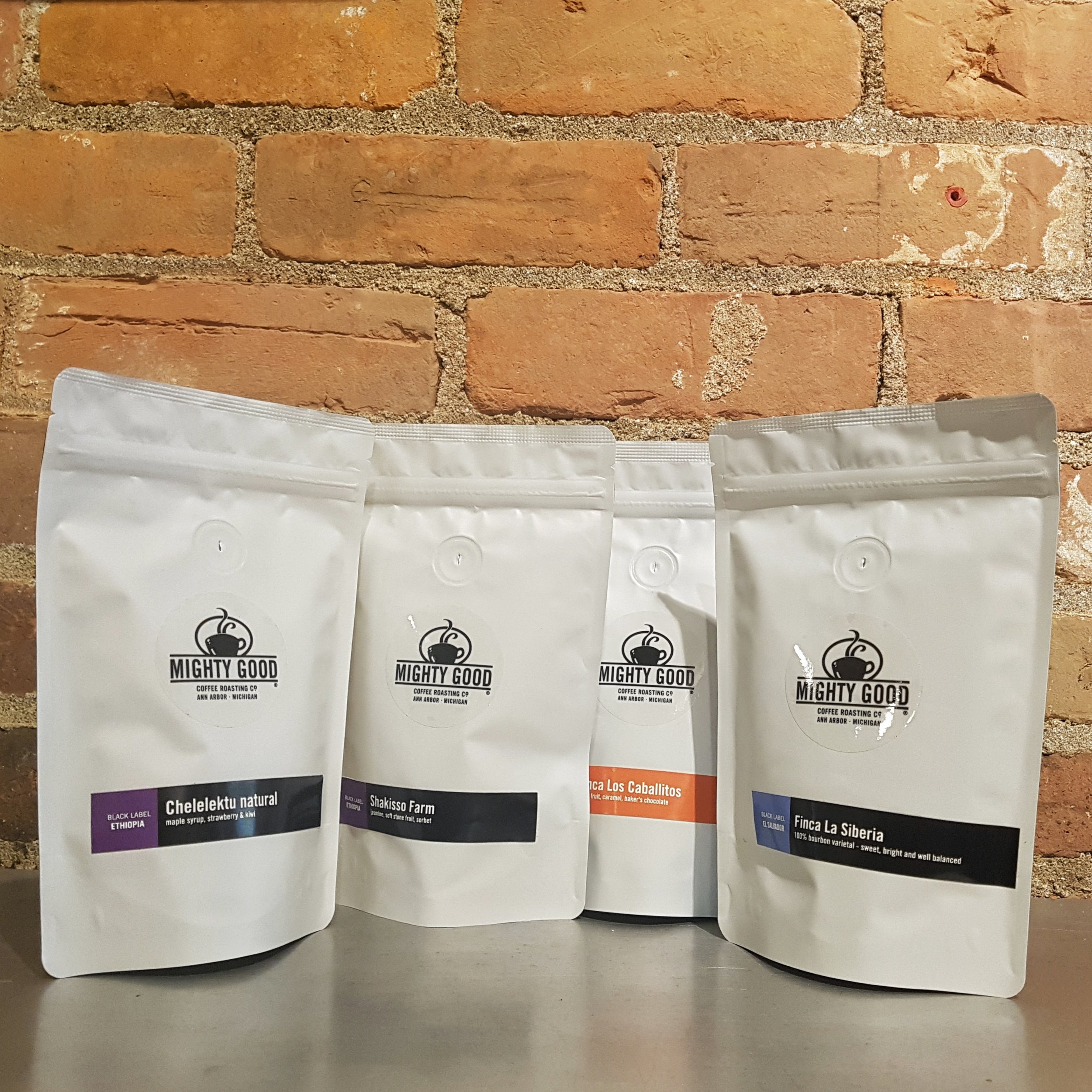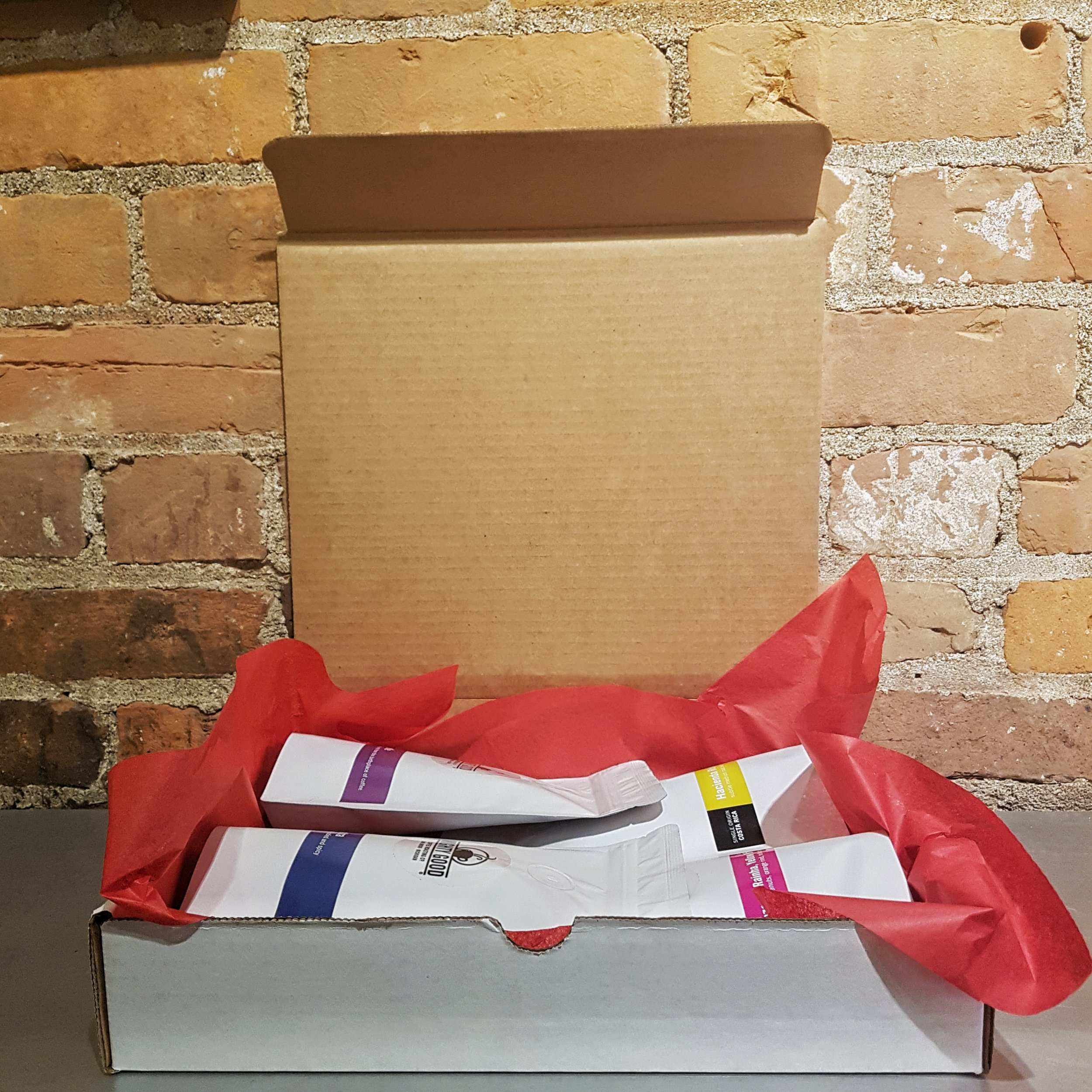Summer in Michigan is lovely—the greenery! The long days!—but can be oppressive, unless you really enjoy humidity and mosquitoes. Consecutive days of 90 degree weather take their toll, and it’s enough to have any right minded individual dreaming of a long weekend at the lake, or at the very least a small thunderstorm.
We spend the winter longing for sunshine, and the summer trying to figure out how to stay cool. Luckily, Mighty Good Coffee is here to show you how.
Iced coffee is the best. No matter the form it takes—cold brew, iced latte, nitro, or an espresso cocktail—it is refreshing, delicious and provides that much-needed caffeinated kick to get you through the hot summer day.
At Mighty Good, we have an extensive range of drinks for you to sample (depending on location). Here’s the lowdown:
COLD BREW
The original. The best. This dark-roast Brazil is steeped overnight to bring out the deep, rich flavors for which our cold brew is known. The resulting concentrate is then cut with water or milk (or try chocolate milk for a decadent treat) and then served over ice. Available in 16 oz servings at all our locations, or find ready-to-drink bottles at Plum Market, Busch’s and various other grocery stores around South-east Michigan (as well as our cafes).
Main Street also serves 12 oz glasses of Ethiopia Sidamo cold brew, essentially blueberry sorbet in coffee form, served uncut.
NITRO COLD BREW
Double Black blend (previously Black Diamond) is brewed like cold brew, then infused with nitrogen and kegged, producing a smooth, silky drink reminiscent of a stout or Guinness. Served right out of the tap (no ice or milk needed) in a 12 oz size at Main Street and Arbor Hills. This is the only one of our iced drinks not available as decaf—everything else can be deliciously decaffeinated upon request.
ICED LATTES
All our lattes, made with Calder Dairy milk and Espresso #46, are available iced. Brown Sugar Sea Salt, Lavender Honey or Cocoa Latte—they’re equally marvelous cold. These are served in 16 oz sizes and available at all our locations.
ESPRESSO TONIC
Like a gin and tonic, except without the alcohol and with, y’know, coffee. A cool, bubbly, invigorating summer drink—a shot of Espresso #46 is poured onto Top Note tonic and served on ice. Available in a 12 oz size at each Mighty Good cafe.
ICED AMERICANO
An Americano, but iced. It really is that easy. Espresso #46 in cold, filtered water, with ice—a cool, crisp caffeine infusion. Try one at any of our locations in a 16 oz size.
JAPANESE ICED POUR-OVER
Want to try one of our coffees iced? We can do that, using this incredible iced pour-over method popularized in Japan. Replacing half of the water with ice, this method produces a delicate cup that’s flash-iced to preserve the unique flavor characteristics of the particular coffee. Especially suited to our Black Label range—we recommend the Ethiopia Yirgacheffe Worka Fair Trade Organic. Available at Main Street and Arbor Hills in a 16 oz size.
ICED TEA
With help from our friends at Arbor Teas, we have three iced options for the summery tea lovers out there: a black Assam, green Jasmine and, for those looking to avoid caffeine, an herbal Chamomile Mint. Available in a 16 oz size at all our locations (or try the Peach Rooibos exclusively at the Jefferson Market).
AFFOGATO
A scoop of Calder Dairy vanilla ice cream, topped with a shot of our Espresso #46—it’s the perfect post-panini dessert at Arbor Hills.
ESPRESSO MILKSHAKE
Oh yes. Calder Dairy vanilla ice cream, milk and Espresso #46 are blended together to make a luxurious, velvety treat with a kick. This one is also only available at our Arbor Hills cafe—come on by and try them out!
So stop in, grab an iced pick-me-up and beat the heat. At Main Street, Arbor Hills, South University or the Jefferson Market, we’ve got your summer covered.

